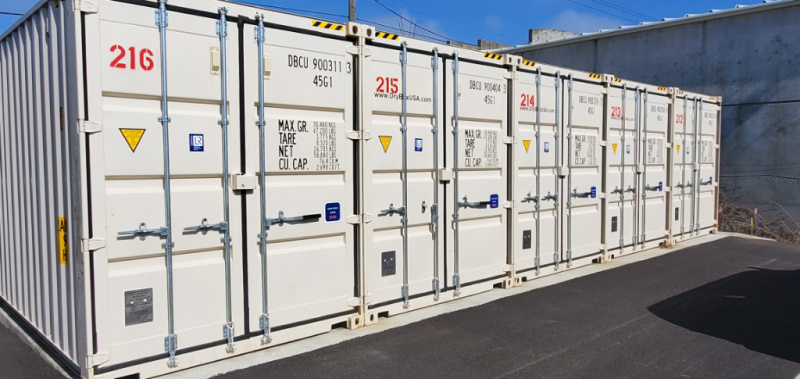Determining what you plan to store is crucial. Whether you are clearing out a room, storing seasonal items, or putting away an entire household’s worth of belongings, making a list is a good starting point. Include both current needs and any potential future additions to get a comprehensive idea of your storage requirements. Categorize items to make it easier to estimate the space each group will need. Take into account the different sizes and shapes of your belongings. This detailed inventory will serve as a foundation for understanding the overall space you’ll need, making it simpler to select the right storage unit.
Elements Affecting Storage Capacity
The types of items you plan to store play a significant role. For instance, large furniture pieces and appliances take up more space compared to boxes of clothing or books. Additionally, evaluate the space available at your current location. Do you need to clear out a garage or basement, or are you storing items from a small apartment? Understanding these variables will help you determine the size and type of storage unit that fits your situation.
Seasonal items and infrequently used belongings can also affect storage capacity. Bulky items like holiday decorations or sporting equipment might require more room than everyday household goods. Additionally, items that need special care, such as fragile or climate-sensitive possessions, could influence your choice of storage unit, pushing you towards options with specific amenities like climate control.
The arrangement of your stored items impacts how efficiently you can use the space. For example, disassembling furniture can save considerable room, while neatly packed boxes will allow for better use of vertical space. Lastly, consider the frequency with which you’ll need to access your items. Frequently accessed belongings should be stored in an easily reachable manner, potentially requiring more space for easier navigation.
Optimizing Your Storage Usage
Efficient organization within your storage unit can maximize space usage. Start by placing heavier items and furniture at the back of the unit. This not only keeps the weight balanced but also ensures that you have easy access to lighter, more frequently used items at the front. Use shelving to make the most of vertical space, allowing you to stack boxes and smaller items securely.
Label all boxes clearly so you can find what you need without having to open each one. Consider using uniform box sizes, which can make stacking easier and more stable. Place items you may need to access regularly in an easily reachable spot, saving you the trouble of moving multiple boxes to get to one item.
For delicate or fragile items, use bubble wrap or packing paper to provide additional protection. If your storage unit doesn’t have climate control but you’re storing items sensitive to temperature and humidity, consider using moisture absorbers or protective covers to mitigate potential damage.
Think creatively about the space you have. For instance, disassembling large furniture pieces can free up significant room. Items like bed frames, tables, and shelves can often be taken apart and stored flat, saving valuable cubic feet.
If you’re storing tools or small items, consider using clear plastic bins instead of cardboard boxes. Clear bins allow you to see the contents easily, making it simpler to locate specific items. Arrange your belongings in a way that leaves a small aisle down the center of the unit. This not only makes navigation easier but also allows you to reach items at the back without hassle.
Following these strategies can help you use your storage unit more effectively, ensuring you make the most of every inch of space available.
Selecting the Best Storage Provider
Choosing the right storage provider is crucial for a smooth storage experience. Consider factors such as location convenience, security features, and customer reviews. Visit potential storage facilities to assess their condition and safety measures. Prepare a list of questions to ask potential providers, such as their policy on climate control, accessibility hours, and any extra services offered. Evaluate the security measures in place, such as surveillance cameras, gated access, and on-site personnel, to ensure your belongings are well-protected. Additionally, assess the cleanliness and overall maintenance of the facility, as this can indicate the level of care and professionalism you can expect. Look for storage providers that offer flexible contract terms and various unit sizes to accommodate your changing needs. Lastly, read online reviews and testimonials to get a sense of other customers’ experiences.
For a foolproof solution, contact Chambers Connector Storage in Eugene. We are the experts to call for all your storage needs.


Recent Comments